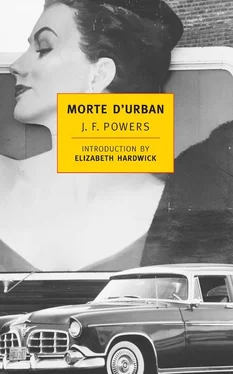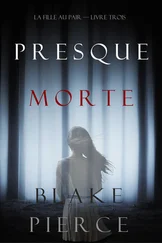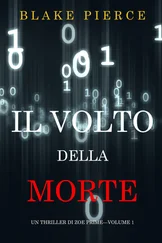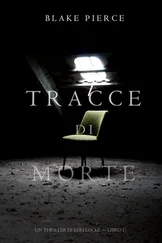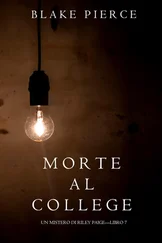The Clementines were still serving the parishes where they traditionally helped out on weekends (except St Monica’s, where Father Udovic was doing without them), Wilf making good use of visitors for this purpose, but Father Urban was left with a certain amount of time on his hands. (He was limiting himself to eighteen holes a day.) And so, with Wilf’s permission, and with Sylvia Bean’s little Barracuda, though he sometimes traveled by rail, Father Urban became the Hill’s roving ambassador of good will.
He made calls in Olympe, Great Plains, Brainerd, St Cloud, Duluth, and the Twin Cities, and once he went as far south as Rochester. The usual thing was to drop in on executives at their places of business, but to let them know right away that he didn’t want anything, and if nothing developed, he’d soon be on his way. “Just wanted you to know where we are. Drop in on us sometime.” Later, if he ran into somebody he’d met in this fashion, it was like old times. Hello— hello! He watched the paper for important funerals, too, and turned up at some of these. Wherever he went, people always seemed glad to see him — and, of course, it was all for the Order.
In St Paul, he dropped in on the president of the Minnesota Central. “I’m just between trains, and thought I’d come in and thank you for those two passes — and let you know we’re not misusing them.”
“Don’t need any more, do you?”
“Well, there are three of us.”
“What’s your name, Father?”
Father Urban told him again, and this time the man wrote it down.
“Not from around here, are you?”
“As much from around here as anywhere else. For many years, I traveled out of Chicago, but I consider Minnesota my home now — and consider myself fortunate.”
“Well, that’s fine.”
“Now I know you’re a Catholic, and we do have this retreat-house, and, of course, we’d love to see you up there, but I’m not trying to sell you on that. I know you’re a busy man. But why not drop in on us sometime, if you’re up that way? Play a round of golf, if you like.”
“Say, I’ve heard about that. Before I forget, should I address the pass to you?”
“It might be better if you sent it to Father Wilfrid.”
The man wrote it down.
“Two i’s ,” Father Urban said. “But better yet — bring it along when you come.”
“I just might do that, Father.”
And that was it. The pass arrived two days later, addressed to Wilf. “Well, it finally came,” he said.
“You don’t say,” said Father Urban.
For some reason, he’d never gone to Ostergothenburg.
In the other dioceses around them there was always a demand for his services, but Ostergothenburg, though closest to his seat of operations, hadn’t been heard from at all. It almost seemed that the clergy of that diocese were pledged to have nothing to do with the Order of St Clement, and that this embargo applied to one who was so much more than just a Clementine. And so, when, in the middle of July, the call finally came from the backward diocese, Father Urban made no bones about being asked to hear confessions on Saturday as well as preach on Sunday. He whipped over in Sylvia’s little Barracuda, pursued by such questions as wouldn’t it be nice if this proved to be a turning point, nice if another diocese were opened for spiritual exploitation, nice if the Hill could draw retreatants from all adjoining dioceses (as a great university draws students from every state and from abroad)? It seemed highly significant to Father Urban that the call had come from the Cathedral in Ostergothenburg.
He arrived on Saturday afternoon, in time to hear confessions and “heard” again in the evening. The next morning, he preached at three Masses — it was this, his preaching he was wanted for at the Cathedral, so he’d thought, and why not?
He had arrived at the Cathedral, however, to discover first that the Rector wasn’t on hand that week, then that he hadn’t been there for a month, then that he wouldn’t be there for another month, and, finally, that he was in Europe. The curates were having a devil of a time getting a replacement for him each weekend, and that was why they’d called the Hill. Unfortunately, Father Urban didn’t find this out right away, and so, on Saturday night, after confessions, he’d returned to the rectory expecting a party of some kind, a gathering of the clergy who had been wanting to meet him. There had been nothing — not even hospitality from the curates. One took off for the movies and the other went to bed. So there was Father Urban, at nine o’clock in the evening, alone in a strange diocese, in a spare room, with the only light coming from a frosted glass pot in the ceiling — a maid’s room, without TV. He knew then, for sure, that he’d been had.
Nevertheless, he preached beautifully the next morning. Even if the people had come with the idea of hearing not whoever happened to be there that week, but Father Urban, they would not have been disappointed. Everywhere Father Urban saw that look of “Who is this?” in their eyes, and yet only one elderly man stayed after Mass to speak to him. Except for that, Father Urban had drawn a blank in Ostergothenburg. That was how matters stood at noon.
Hungry from his labors in the pulpit, he returned to the rectory and found that no preparations were being made to eat. The housekeeper, who hadn’t done so badly the night before, seemed to be missing. “Hey, where is everybody?” Upstairs, the curate who’d gone to bed at nine the night before came out of his room. “When the Pastor’s gone, she always goes to her daughter’s on Sunday,” he said of the housekeeper, and of his colleague he said, “He always goes to his mother’s for dinner on Sunday.”
“Well, that’s nice,” said Father Urban.
“However,” said the curate, “I have permission to take the visiting priest out to dinner on Sunday, if need be.”
Something told Father Urban to quit Ostergothenburg at once— Turn back! Turn back! — but he couldn’t, not after that “if need be.” After that, he had to dine out on the Cathedral.
They ate at a little downtown place, early-American décor and a sizzling neon sign in the window. The sign, flashing off and on behind Father Urban’s ear, said EAT AT CLARA’S. Father Urban ordered “roast beef au jus.” When the waitress left, he asked the curate if the older woman at the cash register could be Clara.
“No, she’s off on Sunday,” said the curate. When the waitress returned to their booth, he asked, to be sure, “Clara’s not here, is she?”
“No, she’s off on Sunday,” said the waitress.
“That’s what I thought,” the curate said to Father Urban.
“Oh, she sometimes stops by,” the waitress said to Father Urban.
Father Urban nodded. When he saw what the waitress had brought him — gray meat, mashed potatoes in the form of two balls, bread cut diagonally, and brown gravy over it all — he said to the curate: “Is your mother still living?” And after a bit, he asked about the other curate, whom he’d scarcely seen. “What does your friend do on Sunday night?”
“He stays in. That’s my night out.”
“I see. And where do you go?”
“I go to the movies. The first show.”
“You guys must see a lot of movies.”
“As a rule, we just go once a week.”
“Just once a week.”
“As a rule. He goes on Saturday night, the second show, and I go on Sunday night.”
“The first show.”
“Yes.”
Father Urban declined dessert, which wasn’t easy, since it was on the dinner, the curate and the waitress both pointing this out. When the curate got his — red jello with watery whipped cream on it, topped off with walnut dust — Father Urban, watching the curate attack the stuff, changed his mind. After the waitress had brought him a dish of it and departed again, feeling better and saying, “After all, it’s on the dinner,” Father Urban changed his mind again — or so he pretended — and gave his dessert to the curate, who was quite happy with it.
Читать дальше
